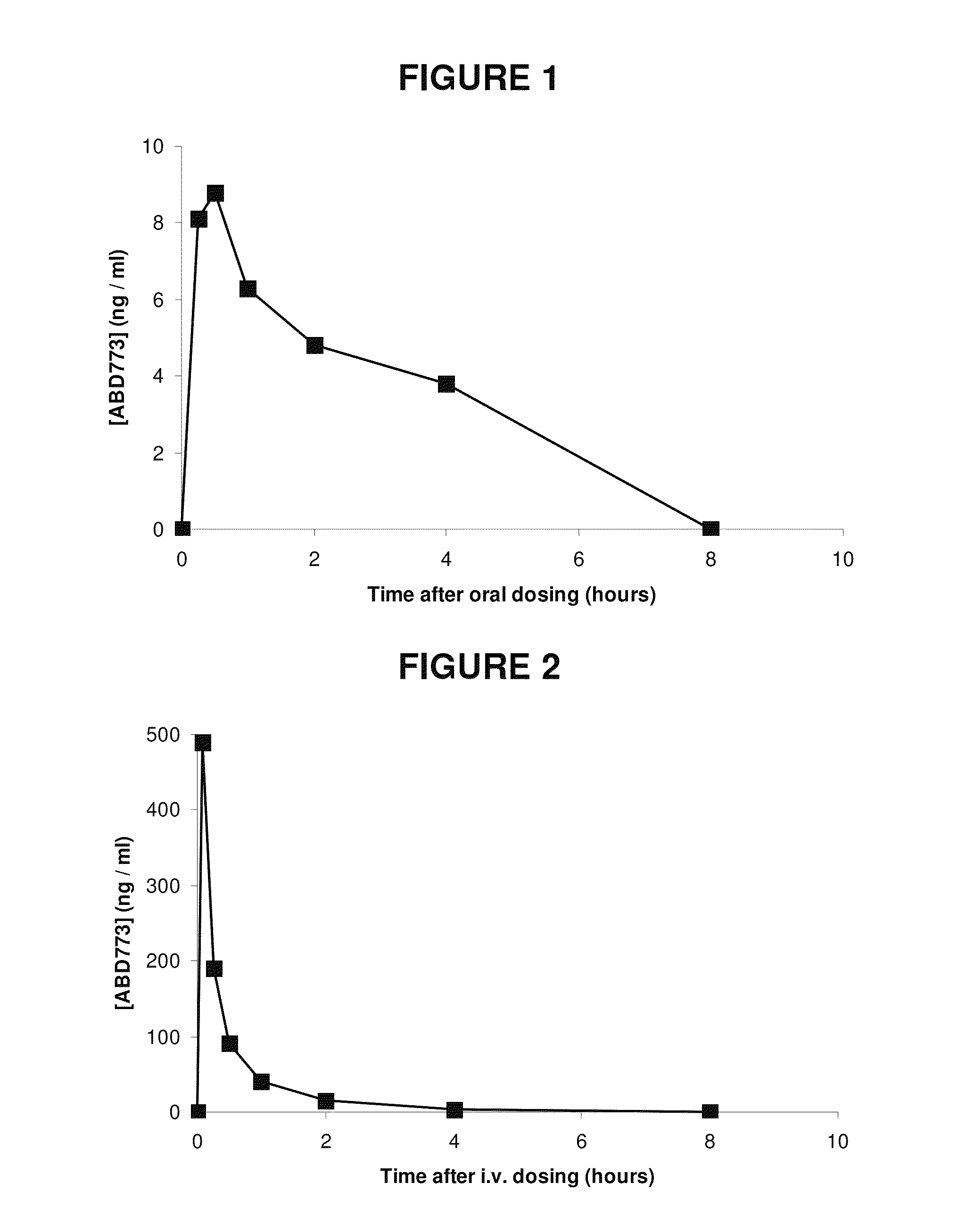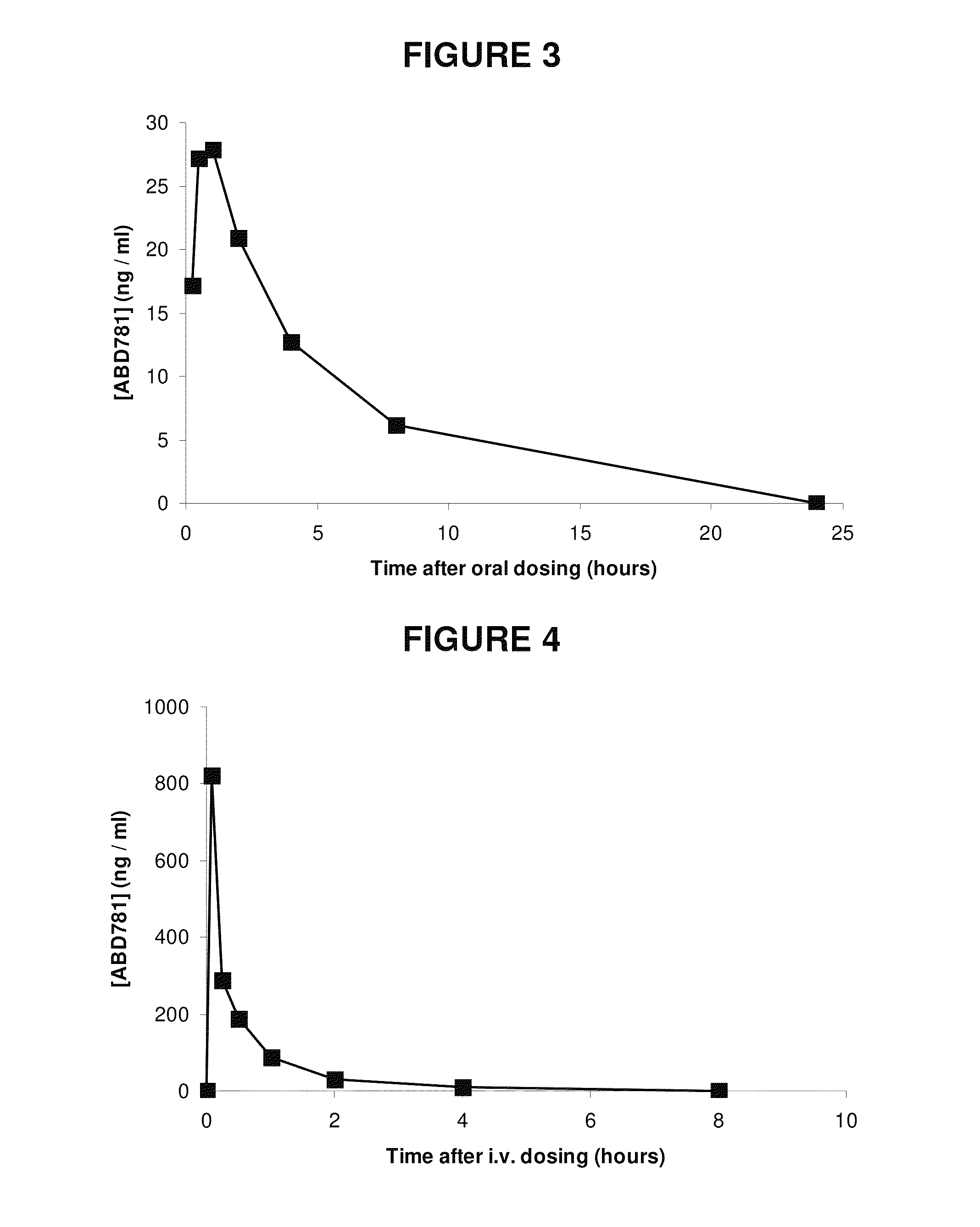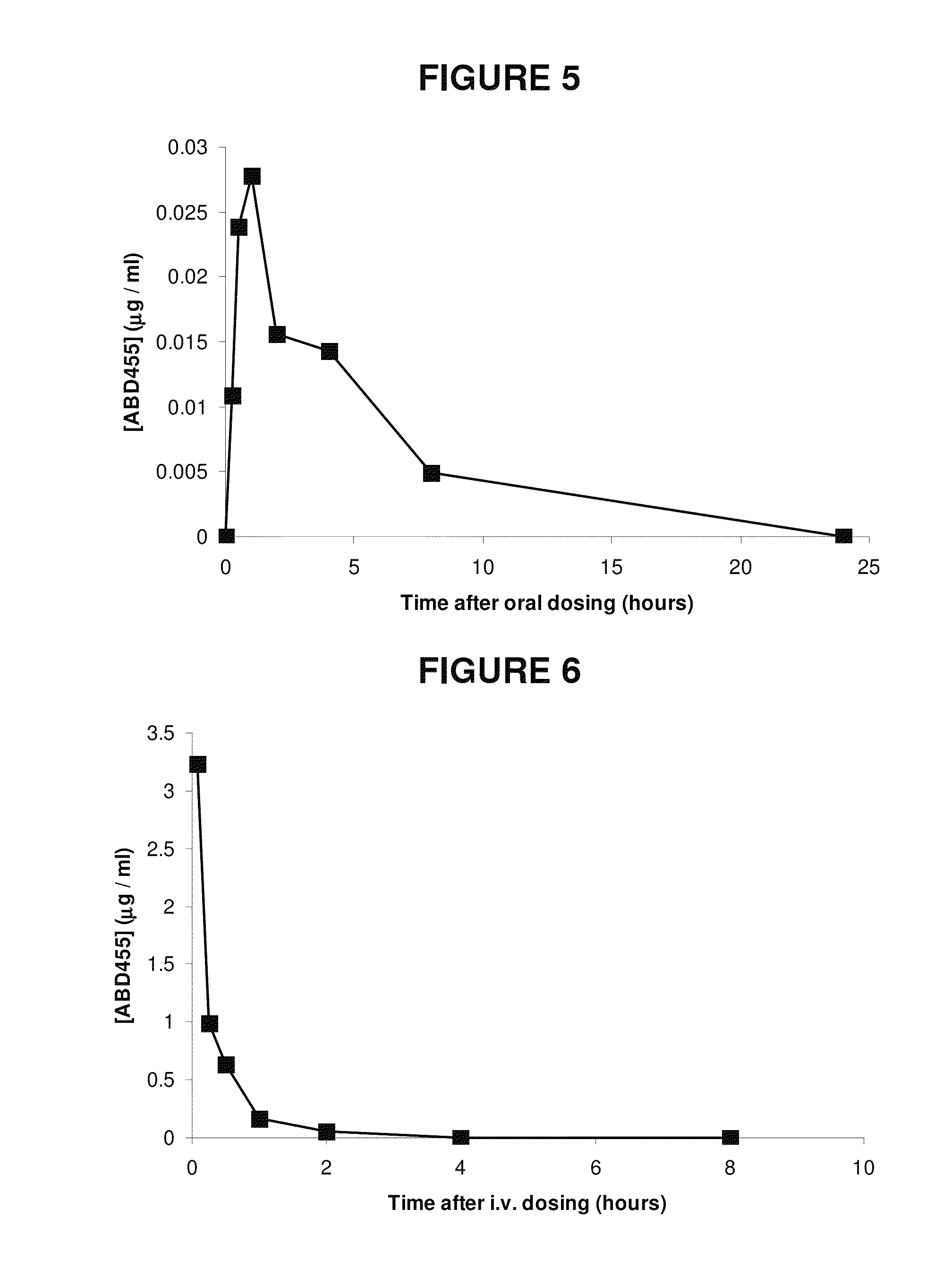Aryl-phenyl-sulfonamido-cycloalkyl compounds and their use
a technology of arylphenylsulfonamide and cycloalkyl compounds, which is applied in the field of therapeutic compounds, can solve the problems of increased mortality if left untreated, significant reduction in quality of life as well, and thickening and vascularisation of synovium into a destructive and aggressive tissue known as pannus
- Summary
- Abstract
- Description
- Claims
- Application Information
AI Technical Summary
Benefits of technology
Problems solved by technology
Method used
Image
Examples
specific embodiments
[0781]In one embodiment, the compounds are selected from compounds of the following formulae and pharmaceutically acceptable salts, hydrates, and solvates thereof:
[0782]
Compound No.StructureABD599ABD655ABD665ABD679ABD682ABD683ABD684ABD698ABD699ABD702ABD703ABD704ABD705ABD706ABD710ABD712ABD714ABD716ABD730ABD732ABD735ABD742ABD756ABD777ABD827ABD828ABD836ABD837ABD839ABD845ABD861
[0783]In one embodiment, the compounds are selected from compounds of the following formulae and pharmaceutically acceptable salts, hydrates, and solvates thereof:
[0784]
Compound No.StructureABD769ABD770ABD771ABD772ABD773ABD774ABD775ABD776ABD781ABD794ABD795ABD796ABD797ABD813ABD814ABD815ABD840ABD841ABD846ABD863
[0785]In one embodiment, the compounds are selected from compounds of the following formulae and pharmaceutically acceptable salts, hydrates, and solvates thereof:
[0786]
Compound NoStructureABD787ABD798ABD799ABD812ABD816ABD817ABD818ABD819ABD820ABD821ABD822ABD864ABD865
[0787]In one embodiment, the compounds are s...
examples
[0962]The following examples are provided solely to illustrate the present invention and are not intended to limit the scope of the invention, as described herein.
Synthesis 1
4-Bromo-N-(trans-4-hydroxycyclohexyl)benzenesulfonamide (ABD598)
[0963]
[0964]Method A: 4-Bromobenzene sulfonyl chloride (1 g) was dissolved in DCM (30 mL). Trans-4-aminocyclohexanol hydrochloride (1 g) was added, followed by pyridine (3 mL). The mixture was stirred for 3 hours, giving a brick red suspension, and then poured into 2 M HCl and separated. The organic phase was collected and the aqueous phase washed with ethyl acetate. The two organic phases were combined and the resultant solution was dried and evaporated to give an orange residue. The residue was recrystallised from ethyl acetate / petrol, filtered and the resultant powder boiled with ether and the title compound obtained as a white powder. 13C NMR (62.5 MHz, DMSO-d6): δ 31.0, 33.6, 51.8, 67.6, 125.9, 128.3, 132.1 and 141.5.
Synthesis...
PUM
 Login to View More
Login to View More Abstract
Description
Claims
Application Information
 Login to View More
Login to View More - R&D
- Intellectual Property
- Life Sciences
- Materials
- Tech Scout
- Unparalleled Data Quality
- Higher Quality Content
- 60% Fewer Hallucinations
Browse by: Latest US Patents, China's latest patents, Technical Efficacy Thesaurus, Application Domain, Technology Topic, Popular Technical Reports.
© 2025 PatSnap. All rights reserved.Legal|Privacy policy|Modern Slavery Act Transparency Statement|Sitemap|About US| Contact US: help@patsnap.com



